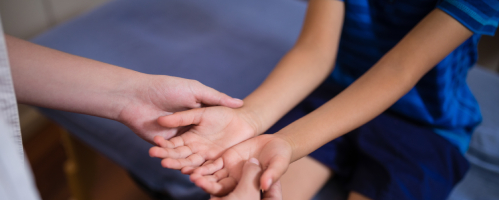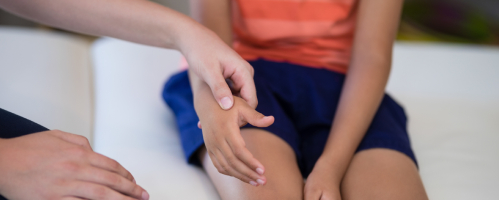Foundational Methods in Pediatric Physiotherapy
Pediatric physiotherapy focuses on enhancing children's physical development and addressing various movement-related challenges. It aids in improving mobility strength and overall quality of life for children from infancy to adolescence.
Primary Methods Used in Pediatric Physiotherapy
Pediatric physiotherapy incorporates diverse techniques to support recovery and promote healthy development:
- Developmental Exercises: Tailored activities to improve motor skills and encourage age-appropriate physical development.
- Rehabilitation Strategies: Personalized recovery plans to enhance mobility and functionality.
- Stretching and Strengthening Programs: Techniques to improve flexibility and muscle strength.
- Hands-On Therapy: Manual interventions to address muscular and joint concerns effectively.
Advantages of Pediatric Physiotherapy
Pediatric physiotherapists design individualized care plans to support children's unique needs. Methods may include posture correction strength building and motor skill development ensuring optimal growth and recovery.
The primary objective is to enhance physical capabilities reduce discomfort and aid children in achieving developmental milestones.
Key Benefits of Pediatric Physiotherapy
- Boosts physical development and motor skills.
- Supports recovery from injuries or surgeries.
- Improves strength balance and coordination.
- Reduces pain and discomfort effectively.
- Encourages participation in daily activities and play.
- Prevents complications related to movement disorders.
- Promotes independence in physical activities.
- Cerebral palsy and other neurological conditions.
- Developmental delays and motor skill challenges.
- Post-surgical recovery and rehabilitation.
- Muscle weakness and imbalances.
- Orthopedic issues affecting movement.
- Chronic pain and mobility restrictions.
- Genetic disorders impacting physical abilities.
Conditions Addressed Through Pediatric Physiotherapy


Guidelines for Pediatric Physiotherapy
Parents should consult a professional pediatric physiotherapist if their child exhibits any of the following conditions before beginning therapy:
- Recent injuries or fractures requiring care.
- Significant swelling or inflammation.
- Underlying chronic health issues impacting mobility.
Possible Outcomes of Pediatric Physiotherapy
While typically beneficial some children may experience mild side effects such as:
- Temporary muscle soreness post-session.
- Minor fatigue following therapy activities.
- Occasional stiffness as muscles adapt.
What Happens During a Pediatric Physiotherapy Session?
During a session the physiotherapist evaluates the child's unique needs and designs a tailored program. This may include hands-on therapy exercises and age-appropriate activities to promote recovery and physical development. The sessions aim to foster holistic growth and improve overall well-being.
